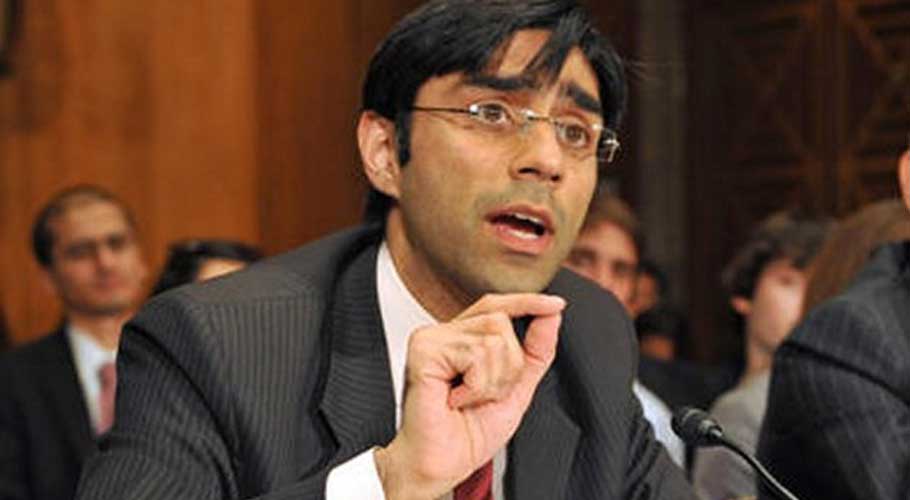ISLAMABAD: National Security Adviser (NSA) Dr Moeed Yusuf has clarified that Pakistan has not offered any military bases to China in strategic Gwadar port, reiterating that any country can invest in the $60 billion China-Pakistan Economic Corridor (CPEC) project since “we are not closed to anybody.”
Speaking to BBC’s Stephen Sackur on HARDtalk, Dr Yusuf pointed out that there are economic bases of China in Pakistan, where any country in the world can invest, adding that “the same were also offered to the United States, Russia, and the Middle East.”
Yusuf delved into Pakistan’s ties with China, saying that Beijing was a close friend of Islamabad. He once again reiterated that any country in the world can invest in the China-Pakistan Economic Corridor (CPEC) project since “we are not closed to anybody.”
When asked whether Pakistan had developed close ties with China at the cost of raising its voice for Muslims around the world, particularly those in Xinjiang, Yusuf said that Pakistan does not agree with the Western version about the alleged atrocities being committed against Muslims in Xinjiang.
“We have relations of trust with China and our ambassador and other delegations from here also visited the Xinjiang province,” he observed, adding that if Western countries have a problem with China, they should talk to Beijing about it.
When the topic of discussion turned towards Kashmir, Yusuf said Pakistan would raise its voice for the oppressed since they were a part of Pakistan and not another foreign country.
Yusuf also highlighted the plight of Afghan people, saying that the country was heading towards a new disaster. Yusuf appealed to the world for humanitarian aid for the people of Afghanistan.
“If there is a government of people who fought against America and other western countries, there are also 35 to 40 million people who have nothing to do with it,” he said, adding that millions in Afghanistan needed to be fed.
“There is huge pledged money which cannot get into Afghanistan. There are 19 channels, including the United Nations, which cannot function. How can people there be fed then?” he asked.
TTP agreement
When Moeed was asked about the incumbent government’s negotiations with the banned Tehreek-e-Taliban Pakistan (TTP), the host also referred to the recent proceedings in the Supreme Court of Pakistan during which Prime Minister Imran Khan was questioned over the government’s ongoing talks with the militant outfit.
“Is the government going to sign a document of defeat with those who killed these children? Are we going to surrender once again?,” Sackur quoted the bench’s remarks, which referred to the 2014 Peshawar Army Public School (APS) attack.
Moeed stated that all stakeholders need to be taken into confidence. “There are parents who lost children, brothers who lost their sisters, sons who lost their fathers. There are problems with the tribes because they were wiped out.”
“We have a consistent policy as a state that negotiations must happen from a position of strength. This is what we told the US and others for 20 years for Afghanistan and I wish they would have listened. The TTP was getting its support from India and Afghan intelligence and that lifeline is gone,” he added.
“They co-existed with the Afghan Taliban as they had contacts. We are in the position of strength because we know that they are reeling at this moment. What we are saying is that, if TTP, are willing to go through the due process of the law in the courts of Pakistan, live according to the Constitution of Pakistan, get punished for whatever crimes they committed, renounce violence forever (then), we want to hear what they want to say,” he added.
The security advisor also rebuffed news reports regarding the release of some TTP prisoners as a part of the recent ceasefire agreement with the federal government.



































